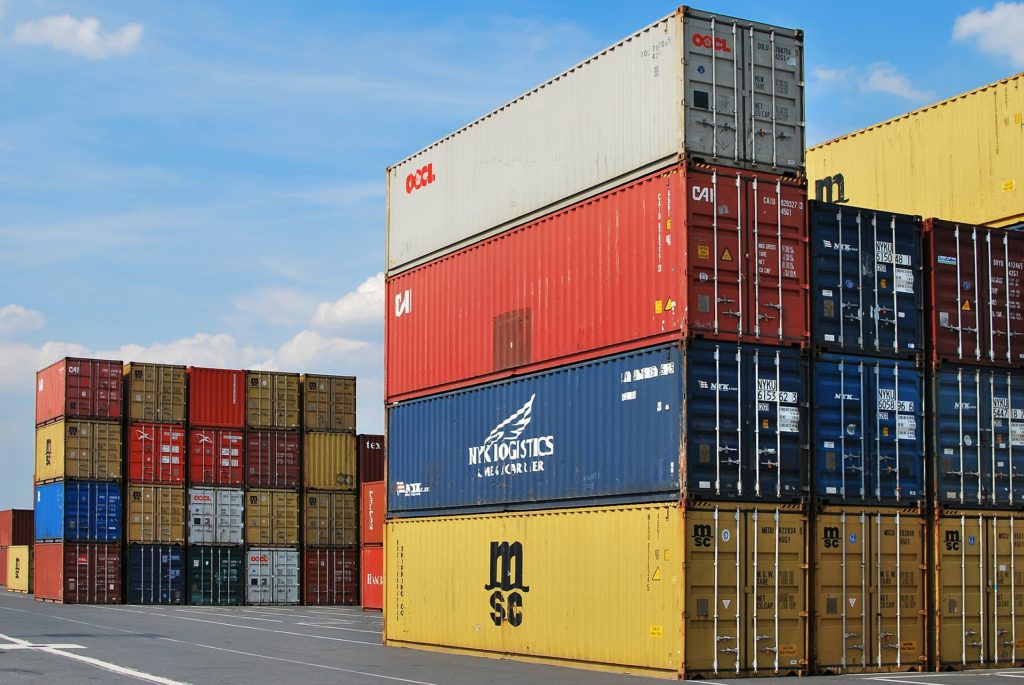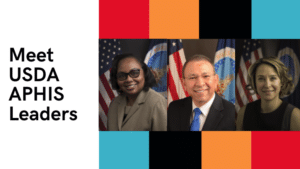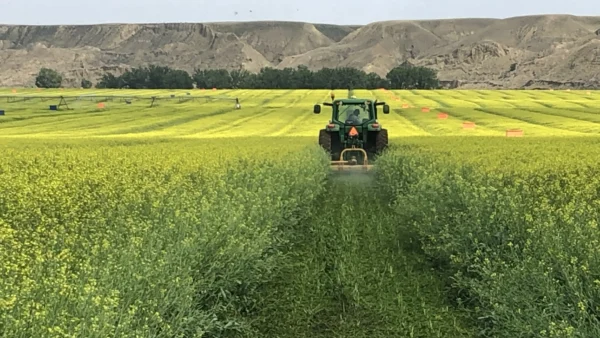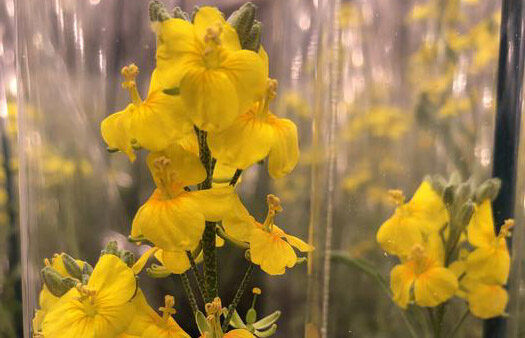A regulatory agency unlike any other, designed to support the industries it regulates.
USDA’s Animal and Plant Health Inspection Service (APHIS) has broad responsibility for safeguarding the health and value of U.S. agricultural and natural resources. So far-reaching is its mission that it touches the lives of most Americans every day. Since its 1972 formation, APHIS has evolved into a multifaceted agency with responsibilities that include protecting and promoting agricultural health from foreign pests and diseases, regulating genetically-engineered (GE) organisms, administering the Animal Welfare Act, and carrying out wildlife damage management activities.
“APHIS is a different kind of regulatory agency,” says Kevin Shea, APHIS administrator. “Our mission is to make healthy and profitable the very people we regulate.
“To make sure we are hitting the mark, we work closely with farmers and ranchers to understand the many complex plant health challenges and opportunities facing agriculture. We consider the full range of regulatory and non-regulatory options, and use cutting-edge technologies, the latest science, advanced methods and data to reach our shared goals.”
Leaders of APHIS’ Biotechnology Regulatory Services (BRS)
program and Plant Protection and Quarantine (PPQ) program work closely with those in the seed industry.
Program Spotlight
BRS analyzes certain GE organisms to ensure they do not pose a risk to plant health. These responsibilities are coordinated with the Environmental Protection Agency and Food and Drug Administration as described in the federal Coordinated Framework for the Regulation of Biotechnology.
These regulations can be intimidating for those not intimate with the process. As such, a support program was developed: the Biotechnology Quality Management Support Program.This program helps organizations of any size (universities, small businesses and large organizations) develop sound quality management practices to enhance their ability to comply with APHIS’ regulations governing GE organisms.
While BRS focuses on safety, PPQ focuses on prevention, and then if necessary, control. This work spans a wide spectrum of activities, including offshore programs, permitting, port and border inspection, pest identification and mitigation, and
smuggling interdiction and trade compliance, as well as pest detection, response, management and eradication programs.
PPQ also facilitates safe agricultural trade by:
Promoting science-based trade standards to help create a fair, predictable, rules-based global trade system.
Resolving plant-health barriers to trade, helping to expand and maintain current export markets and open new ones.
Certifying the health of exports to make sure that the United States presents clean products that meet the requirements of importing countries.
Areas where PPQ works closely with the seed industry include Cucumber Green Mottle Mosaic Virus (CGMMV), a National Seed Health Accreditation Pilot Program (NSHAPP), the National Seed Health System, a Regulatory Framework for Seed Health (ReFreSH) and the International Standard for Phytosanitary Measures No. 38 (ISPM 38).
The 2013 detection of CGMMV in California prompted an important dialogue about improving the safety of global seed trade and seed health protection. Since then, PPQ has worked with state and industry groups to manage and prevent its spread through research, outreach and coordinated regulatory response.
Part of this response is the National Seed Health Accreditation Pilot Program, where Iowa State University, with PPQ oversight, manages a voluntary system of testing imported cucumber, melon and watermelon seed for CGMMV. Since initiation in 2015, NSHAPP-accredited labs have tested approximately 24,000 seed lots, finding and removing infected lots from U.S. commerce.
The National Seed Health System, also administered by Iowa State University, accredits private and public entities to carry out seed health testing, visual inspections and seed sampling needed to obtain phytosanitary certificates. This program delivers big benefits by helping to eliminate delays in shipping seed lots.
Another program is the Plant Germplasm Quarantine Program, a unique service that allows small amounts of prohibited plants and seeds to be imported, primarily for use in plant breeding programs. PPQ scientists grow out the imported seeds and inspect for pests as the plants grow. If no pests are found, they harvest the progeny seeds and ship them to the importer, ensuring U.S. growers have access to high-quality, disease-free seeds.
More recently (In 2017), the International Plant Protection Convention (IPPC) adopted an international standard that provides guidance for safely moving seed internationally. Working with the North American Plant Protection Organization (NAPPO), PPQ helped design and present a workshop earlier this year to guide safe seed trade in the Americas by promoting implementation of ISPM 38. To advance global acceptance of systems approaches, PPQ, working through NAPPO, successfully petitioned the IPPC to develop an annex to ISPM 38 that provides guidance on the development and implementation of seed systems approaches.
One such seed systems approach is ReFreSH. PPQ works closely with the American Seed Trade Association (ASTA), the National Plant Board, individual members of the seed industry, academia and trading partners to develop a risk- and science-based systems approach that leverages industry best practices for managing phytosanitary risk associated with the international movement of seed. Under ReFreSH, producers would get accredited for their production processes, forming the basis for phytosanitary certification.
“ReFreSH will provide an alternative for many companies to move their seed internationally based on the of the strength of their seed quality production and management practices in reducing and managing phytosanitary risk, instead of the current consignment-by-consignment phytosanitary certification process,” says Ric Dunkle, ASTA senior director of seed health and trade. “However, this initiative has a long way to go before it becomes an international effort. Next steps are small scale pilot projects, which we hope to get underway later this year.”













